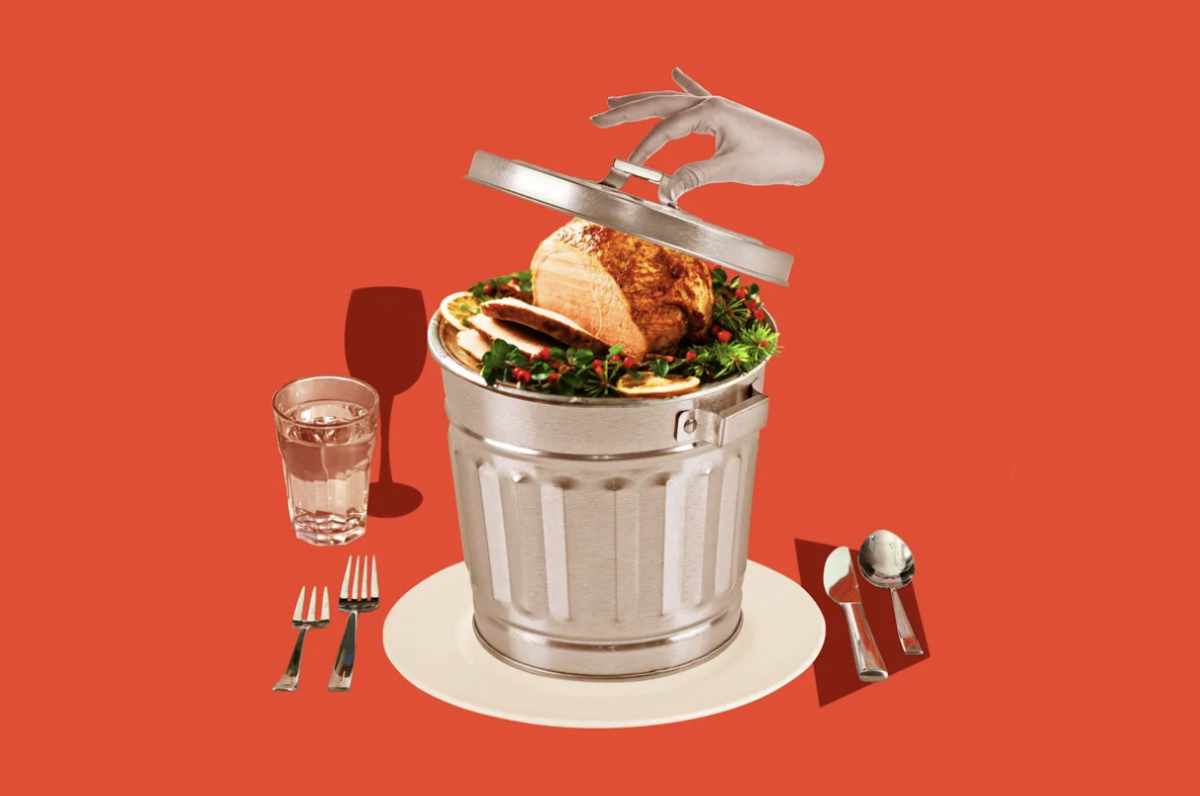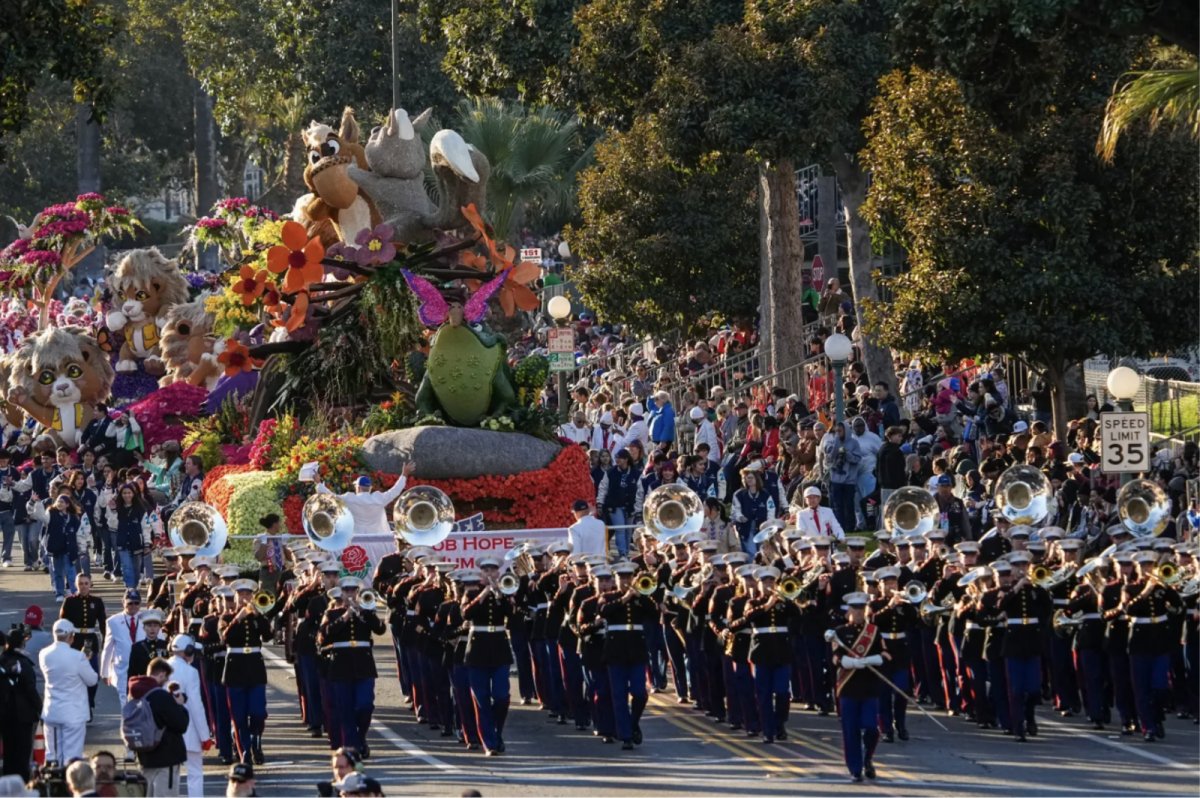The holidays are a time for the family to spend time with each other, and what better way to bring people together than with a table full of deliciously prepared food? A common mental image of family gatherings consists of a meal, but what happens at the end of any holiday dinner? Overpreparation, and in turn overconsumption, lead to large amounts of food going to waste, piling up in landfills, and damaging the environment. This adds up, especially in the time between Thanksgiving and New Year’s Eve, according to the Ecology Center; to a 25% increase—in comparison to the rest of the year— in food waste affects the United States during this season, or 250,000 tons added to be exact. With such an influx of discarded food, landfills need room and resources to process the trash, which damages our environment. Additionally, methane is produced when the food breaks down; with its ability to trap more heat per molecule than carbon dioxide, it is about 80 times more dangerous than the latter. With growing concerns about climate change, this only accelerates the problem.
Moreover, holidays are the time when food waste grows at a disproportionate rate, but not the only period where food is thrown away irresponsibly. U.S Environmental Protection Agency Administrator Andrew Wheeler states that “70 billion pounds of food waste [reach] our landfills every year, contributing to methane emissions and wasting energy and resources across the food supply chain.” As we throw food away, the fields, water and transportation used to supply it to us goes to waste as well. The EPA observes that food is more common in landfills than any other type of waste, accounting for around 24% of solid waste across cities alone.
Part of the reason why food is wasted so widely comes from the places where we buy it. When food expires at supermarkets, it is usually thrown away without considering alternatives. As a result, grocery stores have become responsible for around 10% of food waste throughout the year, and accordingly more during the holiday season, says The Guardian. Overstocking, marketing, portion sizes and more are some other reasons why we see so much produce waste at the hands of supermarkets.
Two years ago in 2023, Americans threw away 312 million pounds of food on Thanksgiving, or a pound of food per person, states the ReFED organization. The non-profit organization working to minimize waste also says that this amount of food used around 103.6 billion gallons of water to grow, or 156,980 Olympic pools. These are the consequences of letting food go to waste without considering what we are truly throwing away, not just consumables. On average, Americans waste 30-40% of their food, and with the holiday season prime time for family gatherings, even more food is thrown away. The economy also suffers from this large amount of waste; the 40% of food that isn’t consumed means a loss of over $218 billion or 1.3% of the U.S.’s overall GDP. Also, according to the EPA, the land used and needed for food waste accumulates to a region as big as California and New York added together.
As we reflect on the 2024 holiday season and prepare for the upcoming one in 2025, consider how to save food when the time rolls around again. By doing so, families can help preserve land we need to grow and process food, water, money, and the food itself. Here are some alternatives to keep in mind when you gather with your family over the holidays:
- Avoid overconsumption, buying too much food, or food that you don’t need. Overpreparation is common during the season and can be tempting, but is harmful when practiced too much.
- Donate leftovers to local food banks to help those who do not have access to readily available produce. This mitigates the buildup of holiday food staying in your fridge, and gives others who need it a vital resource.
- Compost is your friend! Instead of throwing food into the trash where it’ll end up in a landfill to decay, put it in a compost bin. This allows food to properly decompose and fertilize soil for the future, and helps cut down the amount of food that does arrive at landfill and produce methane.
- Store your produce properly. When food isn’t taken care of properly, this can lead to quicker expiration or other processes that make it inedible, so make sure that you have it in a place that doesn’t negatively affect it.
In light of all the holiday bustle every year, it can be hard to keep track of everything when you already have so much on your plate. Still, a little effort makes a big difference! Every bit of food that doesn’t make it into the trash helps both the ecosystem and your wallet. So the next time the festive season comes around, remember what Virginia Woolf once said: “One cannot think well, love well, sleep well, if one has not dined well.”












